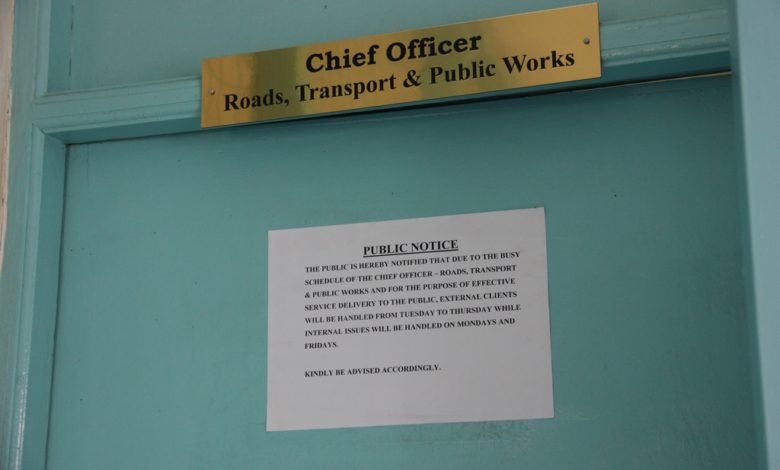The Reality of Information Denial

Access to public information is easy in theory. But in reality it is a dragging process. And sometimes impossible. This is just one case of many:
Kisumu county at the beginning of May 2016 provides a sobering experience, even though the County is one of the rare cases where the County Assembly has prepared (but not passed) its own Access to Information Bill.
Once passed the bill will require the county to inform the public proactively about their matters. Proactively means: You do not have to beg. Information should just be there. The county is supposed to just publish and publicise their future plans. But what do they do?
A case study of May 2016:
What if you want to see the proposed budget?

The proposed budget for the next financial year 2016/17 has been officially tabled in the County Assembly (CA) in the preceding week.
Even though the budget has of course been prepared in soft copies and MCAs usually get an ipad or similar device to perform their duties, the CA get no more than two hardcopies on the day of tabling. 57 hardcopies are announced to arrive in the CA a few days later. How can a member of the county assembly scrutinize the proposed budget if they are not able to search within a soft copy? Leave alone outsiders like journalists who rely on their “special sources” within the county assembly to see the hardcopies.
The softcopies remain with the County executive for the time being. What does the “tabling” of a document really mean if neither the media nor the members of the County Assembly (MCAs) get to see the document “on their table”?
Is this constitutional? In the weeks to come there will be public hearings about the proposed budget in the county. Will it be possible for the media to inform the citizens about the issues at stake?
It is the first week of May 2016, the week following the tabling of the proposed budget in the county assembly, a group of radio journalists from a training of DW Akademie set out to analyze what the county has done and what it is still planning to do for the well-being of its citizens in the years since devolution.
For an impartial report they would need facts, not opinion. They need documents not just the assessment by political players. They will need the budgets of the county’s first three financial years, including their amendments and the documents leading up to the next financial year’s proposed budget, namely the last Budget Review and Outlook Paper, the County Fiscal Strategy Paper (CFSP) plus the paper of the County Assembly’s stance on the CFSP.
The detailed budget implementation reports of the regional director of the Controller of Budget (COB) would also be useful to assess the practice of income and expenditure. And the Annual Development Plans (ADP) of the county would help assessing the progress in planned and ongoing projects. This sounds like a lot. But if you have just one issue in mind – like the one proposed road upgrading – you can quickly browse through the respective chapters of these papers. Make up your mind and ask the right interview questions.
The Odyssey without an End
Journalists from the DW Akademie make up a list and visit the county assembly administration. After 90 minutes of waiting, seeing five administrators and filing a written request as mandated, they receive a hardcopy of just one document: The report of the budget committee of the CA about the Fiscal Strategy Paper (CFSP). Why the written request? “The county clerk wants to know where the documents go. But in the future we will ask our IT department to upload all documents routinely.” So why not now?

The rest of the budget documents, the journalists are told, is not with the county assembly. They should visit the County Administration and ask the County Secretary for them.
Another two hours later, after visits to three desks, from the County Secretary to the Finance Secretary to the Budget Department an empty office marks the end of the day’s journey. The budget department is out for a meeting. The journalists leave a handwritten notice and a flash disk, and they get the phone number of a kind employee who is not in charge. This is Wednesday.
Two visits later they are told they need a formal letter, printing costs of 5,000 KSh, of which an advance of 3,000 Kshs should be paid immediately. For a normal request by a local radio station this would be the end of the line. They do not have the budget to pay that much for documents. Behaviour like this is illegal especially after the new Access to Information Act was enacted in September 2016
The county administrators seem surprised that this time the advance is being paid. The CEC member for Finance approves the formal letter. It is now Friday. Two days after the first request. One member of the journalist group is promised to get the material come Monday. But he returns to the office with empty hands.
Its Wednesday – his sixth visit to the county administration in five days – he finally receives softcopies of the amended budgets of two years, the approved budget of the running year and the proposed budget of the next year. That is something. But it is not the whole package. The Annual Developments Plans are missing. The hard copies he paid the advance for are not part of the package. In the end he gives up on them.
And the administrators even keep the advance. He did not get a receipt.
Another group of journalists is flatly denied access to the quarterly Controller of Budget‘s Reports for the county. This is a nationwide problem – which we have devoted another page to.